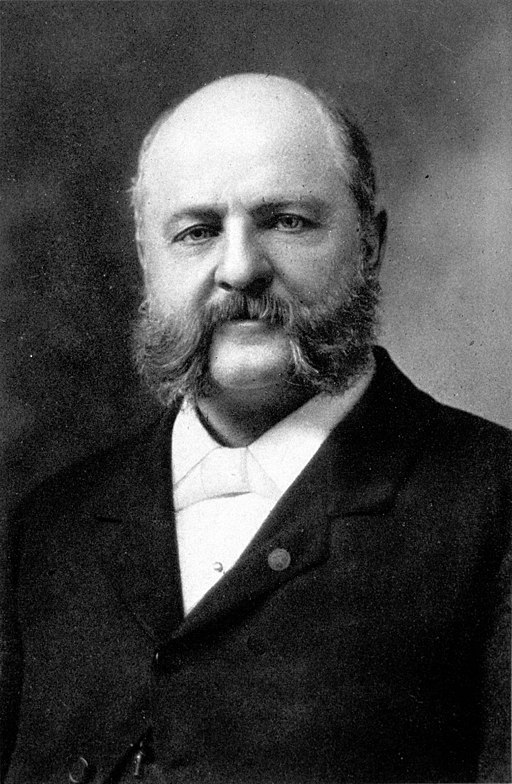Anthony Comstock (1844–1915), a dogged reformer, imposed his Victorian values on a rapidly urbanizing United States as the a special agent of the U.S. Postal Service, sometimes in disregard for the protections afforded by the First Amendment.
Born in New Canaan, Connecticut, Comstock was raised in a strict religious family. He fought for the Union Army in the Civil War and later settled in New York City, where he found employment as a commission house porter. Consumed by but also appalled by urban life, he took as his mission the refortification of American morality.
Comstock Act limited mailing obscene material
In 1873, Comstock organized an independent New York branch of the London Society for the Suppression of Vice.
The society crusaded against pornography and persuaded Congress to pass federal legislation, known as the Comstock Act, making illegal the transportation and delivery through the U.S. mail of “obscene, lewd, or lascivious” materials. The breadth of the legislation included writings or instruments pertaining to birth control and abortion, even if written by a physician.
Comstock was then appointed as a special agent for the U.S. Postal Service, with police powers to enforce the new law. He set out to do just that. Culling the mail for improper materials, Comstock and his colleagues later claimed that they had destroyed 160 tons of obscenity.
Comstock efforts violated First Amendment freedoms
Little troubled by the impact of his efforts on freedom of expression and freedom of the press, Comstock even tried to halt the circulation of certain anatomy textbooks. He turned as well against adventure books and romance novels, on the theory that they corrupted American youth.
Over the course of more than 40 years, he charged 4,000 people, including Margaret Sanger and Emma Goldman, under the law. Under the Comstock law, the postal service confiscated all editions of a newspaper that included a column written by Sanger about the risks to women of sexually transmitted diseases. Later, Sanger was arrested and charged criminally for her own magazine, The Woman Rebel, which had an article about the safety of birth control.
For nearly nine years, Comstock pursued a self-taught sexologist, Ida C. Craddock, eventually arresting her for mailing sex-advice books. Others targeted for writing and mailing sexual material were Angela and Ezra Heywood, Elmina Drake Slenker and Lois Waisbrooker.
In 1905, Comstock tried to suppress "Mrs. Warren’s Profession," a play by George Bernard Shaw allegedly sympathetic to prostitution. Bemused as well as offended by Comstock’s narrow-mindedness, Shaw coined the term "comstockery" to refer to prudish censorship activities.
Comstock tried to build up American morality
Comstock disliked gambling and chance taking and was instrumental in ending the Louisiana lottery, the only legal lottery in the country at the time. He also opposed the use of birth control medications and devices and played a role in the late 19th century criminalization of abortion by various state legislatures.
In the early 20th century, Comstock wrote newspaper articles and lectured college students on what he considered to be their waywardness. Late in his life, Comstock influenced a law student named J. Edgar Hoover with his determination and methods.
This article was originally published in 2009. It includes excerpts from other articles in the First Amendment Encyclopedia. David Ray Papke is a professor of law at Marquette University in Milwaukee, Wisconsin and a long-time teacher and scholar of American legal history.

